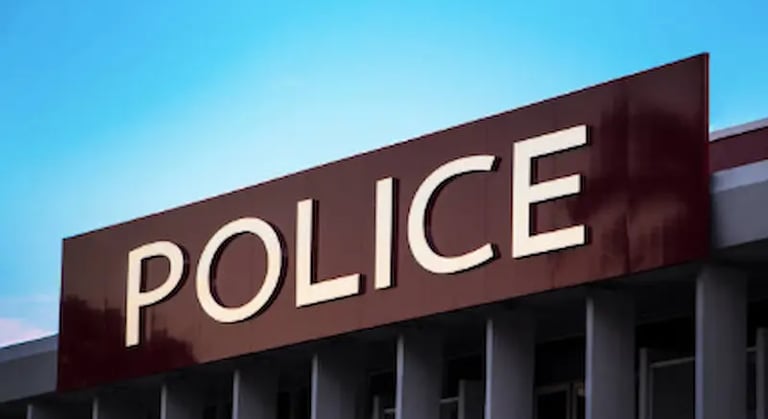Local Laws in Thailand in 2025: Drugs, Alcohol, Road Safety & Sensitive Areas
Thailand 2025: Strict Laws on Drugs, Alcohol, Road Safety & High-Risk Areas. Fines, Prison Sentences — Everything Travelers Need to Know.
BLOG THAILAND
5/26/20254 min read


Thailand 2025: What Every Tourist Needs to Know About Drugs, Alcohol, Road Safety & Risk Zones
Traveling to Thailand in 2025 is a dream for many — but it can quickly become a nightmare if you ignore local laws. From strict drug policies to harsh DUI penalties, Thailand enforces a tough stance on behavior that may be tolerated elsewhere. Here’s a complete guide to staying safe, legal, and informed.
Drugs in Thailand: Zero Tolerance Policy
Since January 1, 2025, Thailand has reclassified recreational cannabis as illegal. While non-psychoactive parts of the plant (like CBD with low THC) are still allowed for medical purposes, personal use is strictly banned.
What tourists need to know:
Possession, consumption, or transport of illegal drugs can lead to heavy fines, immediate arrest, and up to 15 years in prison.
Foreigners caught with drugs may face visa cancellation, deportation, and a criminal record.
Medical use is still legal, but only with official medical documentation and authorization.
Caught in possession? Expect a fixed fine, immediate visa revocation, and possibly deportation — no matter how small the quantity.
Alcohol & DUI: Driving Under the Influence is a Crime
Thailand has one of the strictest DUI laws in Southeast Asia. Driving under the influence of alcohol or drugs can have severe legal consequences.
Legal Blood Alcohol Limits (2025):
0.5 g/L for experienced drivers
0.2 g/L for new or probationary drivers
Penalties for DUI:
License suspension on the spot
Up to 5 years of driving ban
Fine up to $520 USD
Prison sentence up to 2 years
Vehicle confiscation and mandatory court appearance
Refusing a breathalyzer or blood test is treated the same as a positive result.
Road Safety: Don’t Ignore the Rules
Thailand takes road safety seriously — and violations come with real consequences, even for tourists.
Common Traffic Offenses & Fines:
Speeding (+40 km/h): Immediate fine + point loss
No helmet or seatbelt: Standard traffic violation
Phone use while driving: Fine + temporary license suspension
Unlicensed driving: Vehicle impound + court proceedings
Lost points on your license cannot be recovered while abroad. Once they’re gone, they’re gone.
During holidays like Songkran or New Year, expect frequent police checks and mobile alcohol controls. Don't take the risk — call a Grab or Bolt instead of driving.
Sensitive & Dangerous Areas: Stay Alert
Most of Thailand is safe for tourists, but some areas remain unstable or pose higher risks.
Provinces to avoid (2025)
Narathiwat, Pattani, Yala, Songkhla
→ These southern provinces face ongoing political unrest, armed groups, and organized crime. Even if foreigners aren't direct targets, collateral risks remain.
Risky neighborhoods in Bangkok:
Nana Plaza
Patpong
Victory Monument
Khlong Toei
These areas are known for nighttime assaults, pickpocketing, and illegal activity. Stick to well-lit, tourist-friendly areas and avoid going out alone late at night.
Tourists & the Law: No Exemptions
Many tourists believe a foreign passport will shield them from local laws — that is false.
Drug possession? → Prison + deportation
DUI? → Criminal charges
Speeding or phone use while driving? → Fines and loss of driving privileges
Visa overstay or aggressive behavior? → Blacklist and removal from the country
A foreign driving license is not a free pass. You’re expected to follow every Thai regulation while on the road.
Can I Drive in Thailand with My Foreign License?
Yes — if you also carry an International Driving Permit (IDP) and your home license is valid. But local road rules still apply, and any violation (including DUI) can result in the same penalties as a Thai national.
Breaking the Law = End of Your Trip
If you violate Thai laws in 2025, here’s what you might face:
Immediate police custody
Heavy fines or prison
License suspension or permanent cancellation
Deportation and visa bans
Criminal record and entry denial to other countries
FAQ – Impaired Driving & Alcohol-Related Offenses in Thailand (2025)
Everything Tourists Need to Know About DUI, BAC Levels, and Local Driving Laws
What is considered “impaired driving” in Thailand?
Impaired driving refers to operating a motor vehicle while your ability to drive is affected by alcohol, drugs, or other substances. In Thailand, any sign of impairment — whether from alcohol or drugs — can lead to arrest, fines, or jail time.
What is the legal blood alcohol concentration (BAC) limit in 2025?
0.5 g/L of blood alcohol content for experienced drivers.
0.2 g/L for probationary or young drivers.
Exceeding the legal limit leads to immediate penalties, including license suspension and possible conviction.
What happens if I’m caught drinking and driving?
If you're charged with drunk-driving or driving while intoxicated, you risk:
Driver license revoked or suspended
Heavy fines
Possible jail time (up to 2 years)
Entry into your criminal record
Classification as a misdemeanor or more serious offense
Mandatory sobriety program or court-ordered training
Is there an implied-consent law in Thailand?
Yes. By driving in Thailand, you automatically give implied consent to blood alcohol concentration testing. Refusal to take a breathalyzer or blood test is treated the same as a confirmed DUI.
What is an ignition interlock device and is it used in Thailand?
An ignition interlock device is a breathalyzer installed in a car. It prevents the engine from starting if the driver’s alcohol level is above the set limit. While this system is common in some countries, it is not widely used in Thailand yet — but repeat offenders could face vehicle restrictions or interlock recommendations in court.
Can tourists be convicted for DUI in Thailand?
Absolutely. Tourists are subject to the same driving laws as Thai citizens. A DUI conviction can lead to deportation, visa bans, or driver license invalidation. Don’t expect leniency — Thailand takes alcohol-related offenses very seriously.
What is the punishment for high BAC levels or repeat offenders?
For BAC levels significantly above the legal limit, the penalties are harsher.
Repeat offenders may face longer jail time, revoked licenses, or court-ordered devices like ignition interlocks.
A second offense almost guarantees a criminal charge and court conviction.
What if I cause a crash while intoxicated?
Driving while intoxicated and causing crashes can lead to felony-level charges, especially if injuries or fatalities occur. Expect:
Permanent revocation of driving rights
Long-term sobriety monitoring
Mandatory compensation
Long-term imprisonment
Can I drive again after a DUI in Thailand?
Possibly — but only after:
Serving any jail sentence
Paying fines
Completing driver license reapplication
Passing medical evaluations (in cases of repeated impairment)
In some cases, interlock device installation might be required abroad before recognition.
Final Reminder for 2025 Travelers
Drinking and driving in Thailand isn’t just risky — it’s a serious criminal offense. Respect the law, understand the BAC level restrictions, and never drive under the influence. Use taxis, Grab, or designated drivers to stay safe.
Travel
Asia Blog – Practical tips about Vietnam, Thailand, South Korea, Cambodia... visas, eSIMs, banking, travel budget, and more.
© 2025. All rights reserved.
